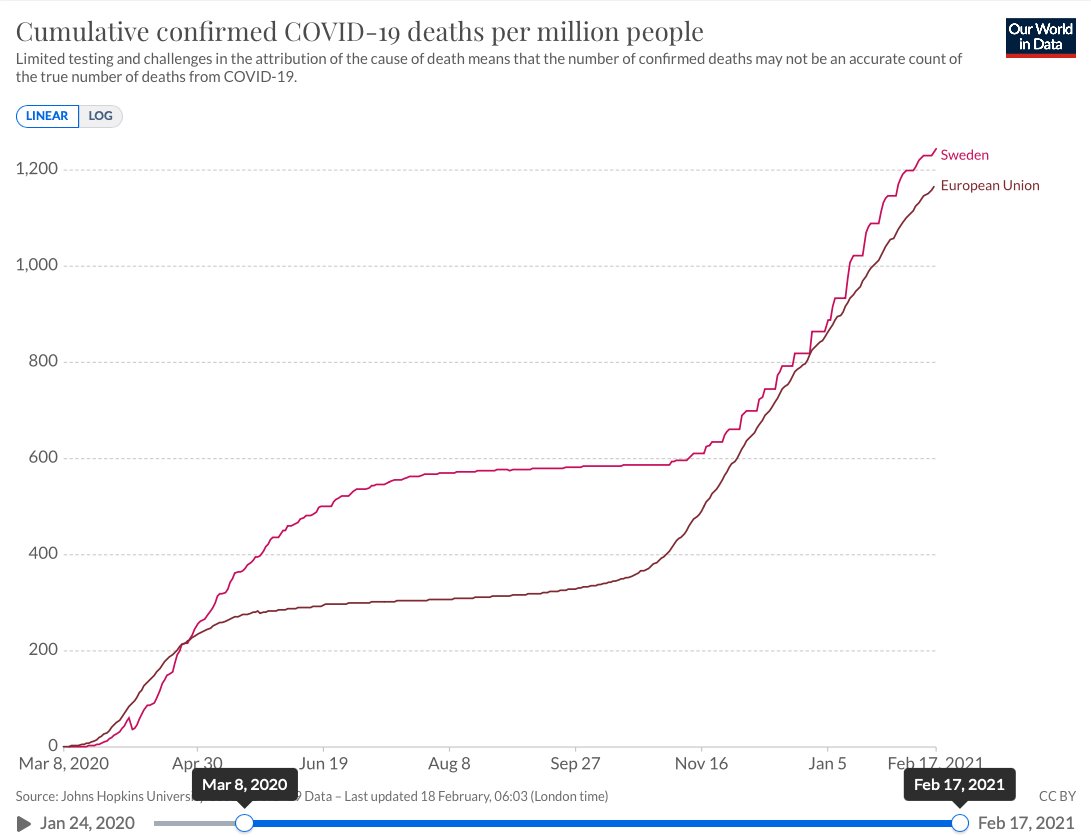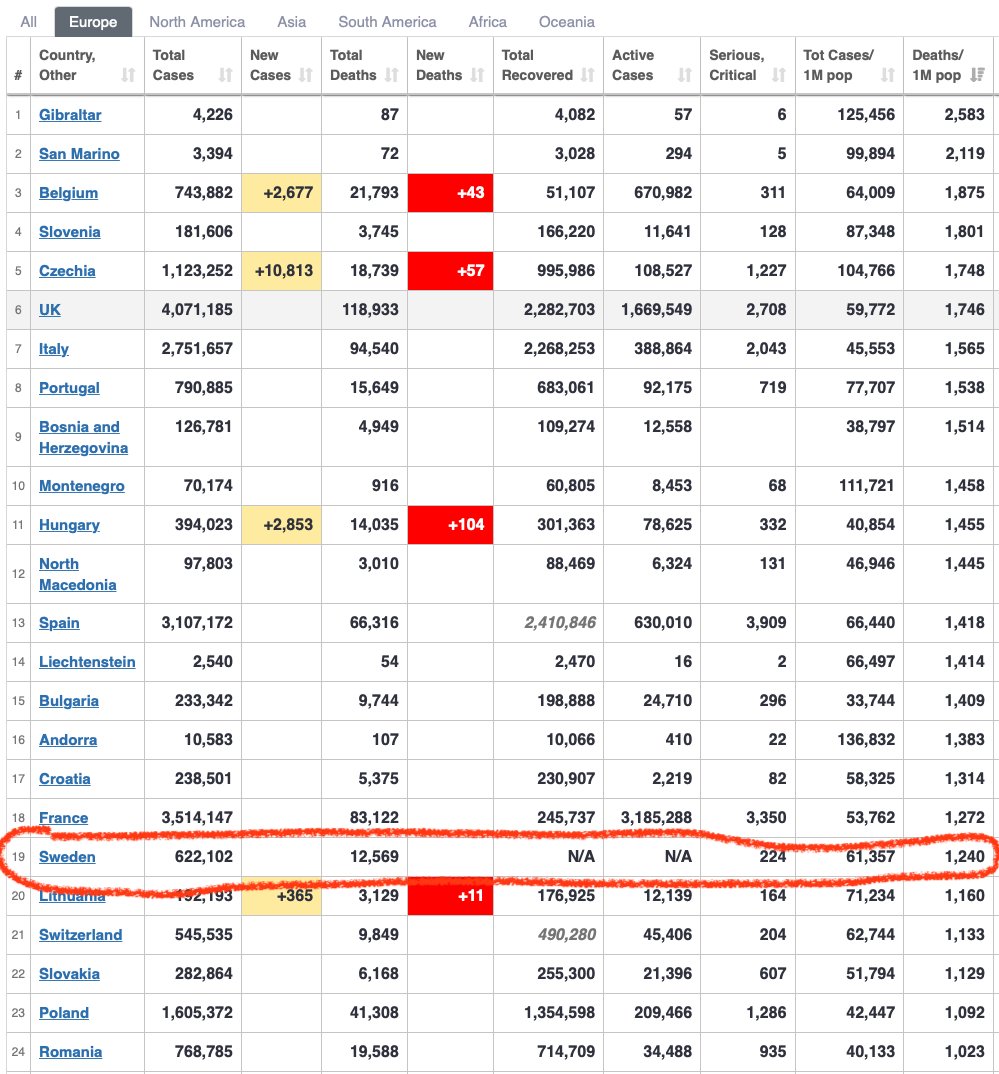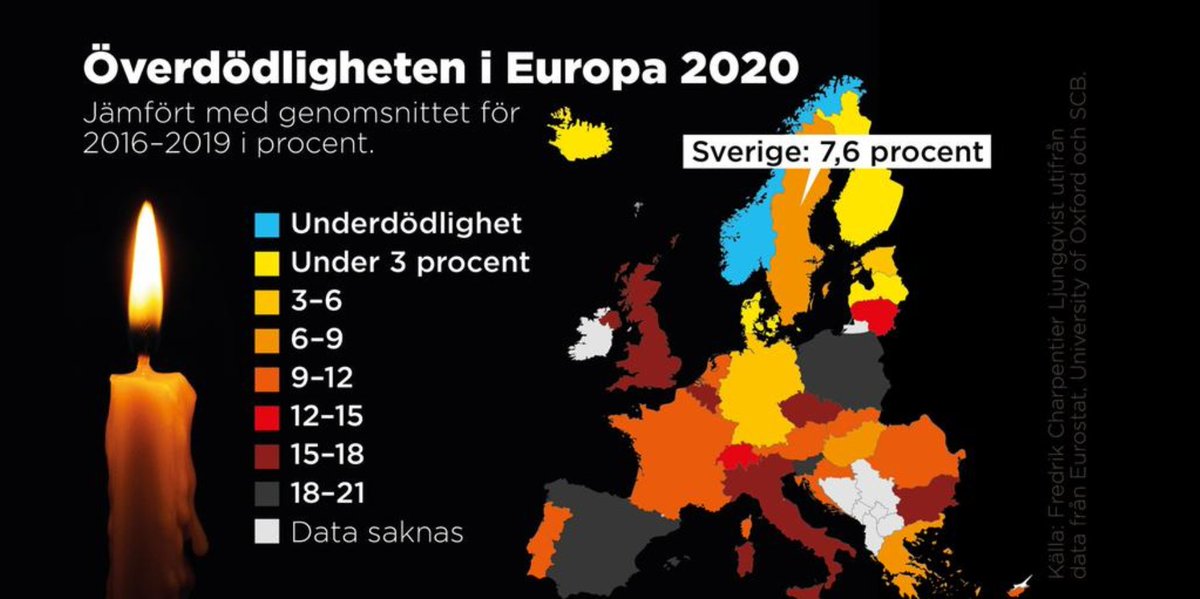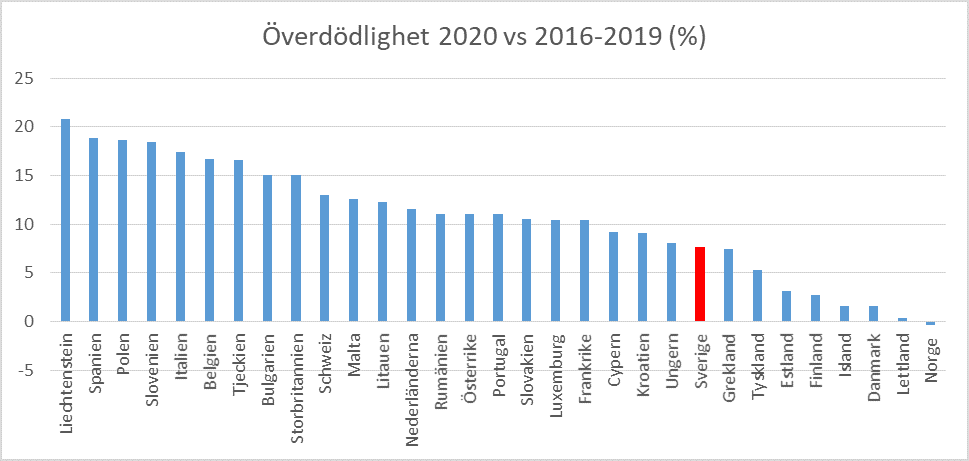
Periodic reminder that in terms of outcomes, Swedish corona policy is thoroughly average in EU comparison – not exactly a model to be emulated by the rest of the world, nor a crime against humanity that should be prosecuted in the Hague. 

Only about two weeks separate Sweden and the EU in this graph, which shows cumulative confirmed COVID-19 deaths per 1M people. Source: ourworldindata.org/coronavirus-da…
There's a lot of disinformation. Here's @ForeignPolicy, which I've always considered a reputable publication, writing that Sweden's death rates are among the highest in Europe: foreignpolicy.com/2020/12/22/swe… 

But that's not true now, and it wasn't true when the article was published. The author's own source says Sweden is #19, much closer to the median (#24 Romania) than to the extremes: worldometers.info/coronavirus/#c… 

By this logic, I'm one of the tallest men in Sweden! Anyway, I suspect we would all benefit if the most agitated commentators could just pipe down.
New numbers today! In terms of excess mortality for 2020, Sweden is again in the middle of the pack – though slightly better than the median. Figures from @SvD and @AgrarSvennis 



Sources: svd.se/svenska-dodsta… and
https://twitter.com/AgrarSvennis/status/1362676012962701316?s=20
• • •
Missing some Tweet in this thread? You can try to
force a refresh









